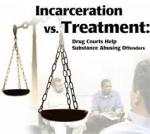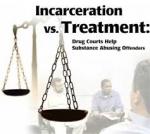Could the God of Love create a system which condemns the majority of humanity to Hell? Universalism, i.e., the belief in Universal Salvation, says no, and I agree.
Hell was a stumbling block on my way to God.
Here’s what I was told: God loves us each with a love greater than any parent, enough to leave 99 sheep in order to look for a single lost sheep, so much that he would give his only begotten son for us, and yet that same God set it up so that the vast majority of people on Earth are going to spend eternity tormented in hell’s fiery pits. It made no sense to me. It still doesn’t.
I was led to think that you either believed in hell and God’s vengeance, or you couldn’t be a Christian. I couldn’t accept those conditions. I was told that folks who never learned of Christ, such as unbaptized babies and inhabitants of remote jungles, were condemned to everlasting punishment for the happenstance of their births. No loving parent could do that to his children, and I couldn’t believe it of the loving God I knew. This was a wedge between me and the faith I was raised in.
An early glimpse of alternative Christian thought came during one of my first visits to a Quaker meeting. I was told by another young adult that she didn’t believe in hell. This was amazing to me, that she could be a Quaker in good standing and not share a religious belief that I thought was universal. I’ve since learned that there is an entire strain of Christianity, dating to the very first followers of Christ, that believes in Universal Salvation, and the belief is even sprinkled among some members of the Catholic, Russian Orthodox and Pentecostal churches.
It’s a little strange for me, a Quaker, to dwell at all on hell. After all, you won’t hear a lot of debate about hell and salvation in Quaker circles. Part of that is because Quakerism is a non-creedal religion and such theology is often beside the point, but it’s also because we also tend to recognize God’s Light in each and every person.
Why do so many churches give hell so much pulpit time? While I’m sure most are simply earnest in their beliefs, there may be other factors. For one thing, it’s an effective conversion tool to whip up fear of damnation. Experience says you can speed church growth if you push the fear button, and hell is a scary prospect. I think that says more about organizational priorities than God’s viewpoint.
The best treatment of Universalism I’ve read is in 2 books co-written by Philip Gulley and James Mulholland, "If Grace Is True" and "If God Is Love". They are Quaker pastors (though many Quakers, like those in Eau Claire, do not have pastors), and their exploration of universal salvation is fearless, faithful, and steeped in their experience of Christ. It would take multiple books to address the many issues involved, but I’d like to share a few ideas that may intrigue you and encourage you to encounter the question more deeply.
>>>> The Bible contains many passages that promise universal salvation. The Bible also contains a number of passages promising hell. It’s not a choice of believing the Bible or not, it’s about which Biblical promise you believe.
>>>> Some churches have said that our “free will” was what allowed us to reject God’s love and promise. They say it’s not God condemning us to hell, it’s us choosing to separate ourselves from God. But what if God rejects our rejection? At one time or another, many children tell their parents they hate them, but the best parents only return love, ever welcoming their child’s eventual return. Could God do any less?
>>>> Why should God’s power to redeem us end with the life of our bodies? Who picked death as the arbitrary moment when we had to put up or shut up? If the soul is eternal, surely God can wait as long as it takes for the return of Prodigal Son or Daughter.
>>>> Some fear that without the threat of hell, no one would bother to turn to God. That just isn’t reality. God’s love and healing are powerfully attractive. What’s more, compliance won by threat and fear is not salvation, anymore than the torture of the Spanish Inquisition really won souls for Christ. It’s not a bother to turn to God, it’s a blessing.
If we remove our hell-colored glasses and realize that God’s grace is universal, it’s the end of fear and the start of something really great. It’s the possibility to let grace permeate every person, action and institution. We become part of a world where there are no unworthies, no least-of-these to be disdained. We no longer cringe fearfully, but stride joyfully into the Peaceable Kingdom.
Is it time to welcome Amazing Grace for everyone?









Add new comment